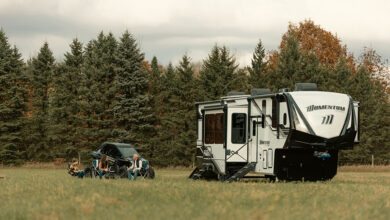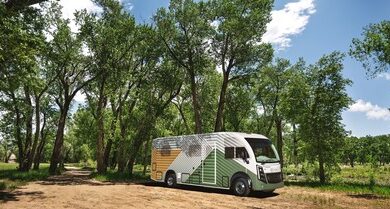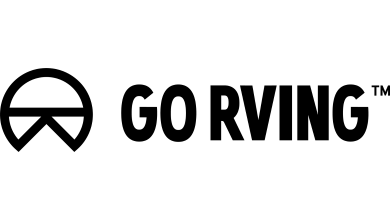Remembering the Titans: Art Decio
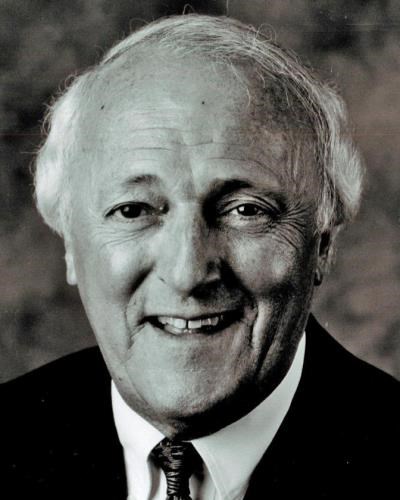 Decio
DecioEditor’s note: In 12 months’ time, two legends in the RV/MH industries, Arthur J. Decio and Thomas H. Corson, passed on. They left behind indelible marks on their industries and a host of memories for those who knew them. Steve Bibler, who covered both men during his 50-year career in print journalism in Elkhart, Ind., shares some of his earliest memories of these two great entrepreneurs. Part 1 of the series ran on Monday; today’s article on Art Decio completes the series.
Arthur J. Decio: Oct. 19, 1930-Nov. 6, 2020
Art Decio once told me that he didn’t think the “trailer business” his father had founded was going to be a success.
However, as Decio (21 years old at the time) started looking into the fledgling business, the better it looked. So, by the summer of 1952, instead of selling off the Skyline Coach Co. inventory, Decio decided this was the business for him and embarked on a career that would not only alter the course of Skyline but also make a deep and lasting impression on his community and the RV/MH industries.
Decio would come to epitomize the entrepreneurial spirit of Elkhart. He introduced “just- in-time” delivery and piece-rate pay to the MH industry – practices that eventually carried over to the RV industry and became industry standards.
In 1959, Decio bought his father’s share of the company for $2 million and embarked on a long-range expansion program. Skyline focused on the mobile home industry but did not lose sight of the RV industry. Decio built his first RVs in 1960 and called the brand Nomad.
As Skyline prospered in the 1960s, Decio landed on the cover of TIME magazine on Dec. 3, 1965, touting him as one of the rising U.S. millionaires under the age of 40. By that time, an urban legend maintained that Elkhart had more millionaires per capita than any city in the country. Decio’s success certainly nurtured that belief.
One Thursday evening in May 1968, to a cheering crowd of 9,000 people gathered in downtown Elkhart, Decio introduced his personal friend and presidential candidate Sen. Robert Kennedy. Decio was a large contributor and fundraiser for Kennedy’s campaign. A month later, Decio was an honorary pallbearer at Kennedy’s funeral.
Decio served on the boards of 44 community and national organizations and was a driving force behind many of the major institutions and causes in Elkhart County. Interestingly, his philanthropy began at the age of 8 when he gave a third of his paperboy earnings to the Salvation Army (for which he would later serve as chairman of the National Advisory Board) and a third to his church.
Newsroom Incident Sets Tone for A Career
My initial exposure to the Art Decio legend and mystique occurred one August afternoon in 1972. I was seated in the newsroom of The Elkhart Truth newspaper and receiving some training from Kenn Washington (the newspaper’s business writer, whose position I would be taking within a few days) when two 30-something men barged into the newsroom, headed straight toward Washington’s desk and slammed down a copy of that day’s edition.
“Why don’t you check with us before writing this stuff?!” or something to that effect, the slammer growled before gruffly leaving the newsroom.
“Who were they?” I asked innocently.
“They’re stockbrokers with Bache and two of your future sources,” Washington said sheepishly.
Yikes!
I subsequently learned that the story that raised the men’s ire dealt with Skyline Corp. Washington had gotten a tip that business watchdog Lowell Dodge attempted to tour and inspect a local Skyline plant days earlier. The company denied permission – which was certainly within its right – but the story could leave the impression with some readers that Skyline may have had something to hide.
I would quickly realize that Wall Street and other investors watched news about Elkhart’s publicly held companies, and a perceived negative news story could cause a hiccup on “The Street.”
Fast forward three months. Skyline, which had enjoyed several consecutive years of record sales and earnings, reported a precipitous decline in earnings for the quarter, which ignited a 20-point drop in its stock value on Wall Street in a single day. Those who followed the company immediately realized it also meant that Decio – owner of 1 million shares of Skyline stock and the largest individual Skyline shareholder – incurred a $20 million paper loss that day. It was the largest single-day loss for any Wall Street investor on record up to that time.
After the August incident, I’m glad I didn’t write anything about the dramatic November bombshell. The incident with the Bache stockbrokers would set the tone for my career as a business writer at The Truth, as many hiccups would plague the RV industry in my years in the media. I soon learned that “good news” is better received than bad news.
Over time, I became a friend to the beloved Decio and came to recognize him as the greatest person I ever knew and the most benevolent person in the history of Elkhart. He gave millions to local institutions and causes. I spoke with him many times and covered many of his public appearances, but never broached the stock loss incident.
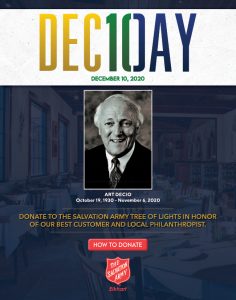 The last time I saw Art was a few weeks before his death. He was dining at Papa Vino’s restaurant in nearby Mishawaka, where he dined 10 or more times each week and had his own reserved booth – Decio had stock in the company that owned the restaurant. Our conversation was very brief. “Hi, my friend,” Art said, adding that we should have dinner sometime.
The last time I saw Art was a few weeks before his death. He was dining at Papa Vino’s restaurant in nearby Mishawaka, where he dined 10 or more times each week and had his own reserved booth – Decio had stock in the company that owned the restaurant. Our conversation was very brief. “Hi, my friend,” Art said, adding that we should have dinner sometime.
His empty booth now displays a table setting, red rose and his picture. Papa Vino’s held a special fundraiser to benefit his favorite charity, the Salvation Army, on Dec. 10, the date that Decio cleverly noted spelled his last name. The event raised around $2,000. Art would have been very pleased.
To read part one of the two-part “Remembering the Titans” series from Steve Bibler,
click here.
